
Kinder Institute for Urban Research
@RiceKinderInst
The Kinder Institute for Urban Research is an interdisciplinary research organization based @RiceUniversity.
🗽Should the government work to reduce economic inequality in America? Every year, the Kinder Houston Area Survey asks local residents where they stand. Research analyst Dylan Simburger explains how public opinion in the region is shifting.
There’s plenty of work, but is there enough talent to fill the demand? The Urban Edge spoke with a Houston nonprofit that’s tackling the problem at its root by helping young people access career pathways and training beyond the four-year degree. ➡️ bit.ly/4l4pby8
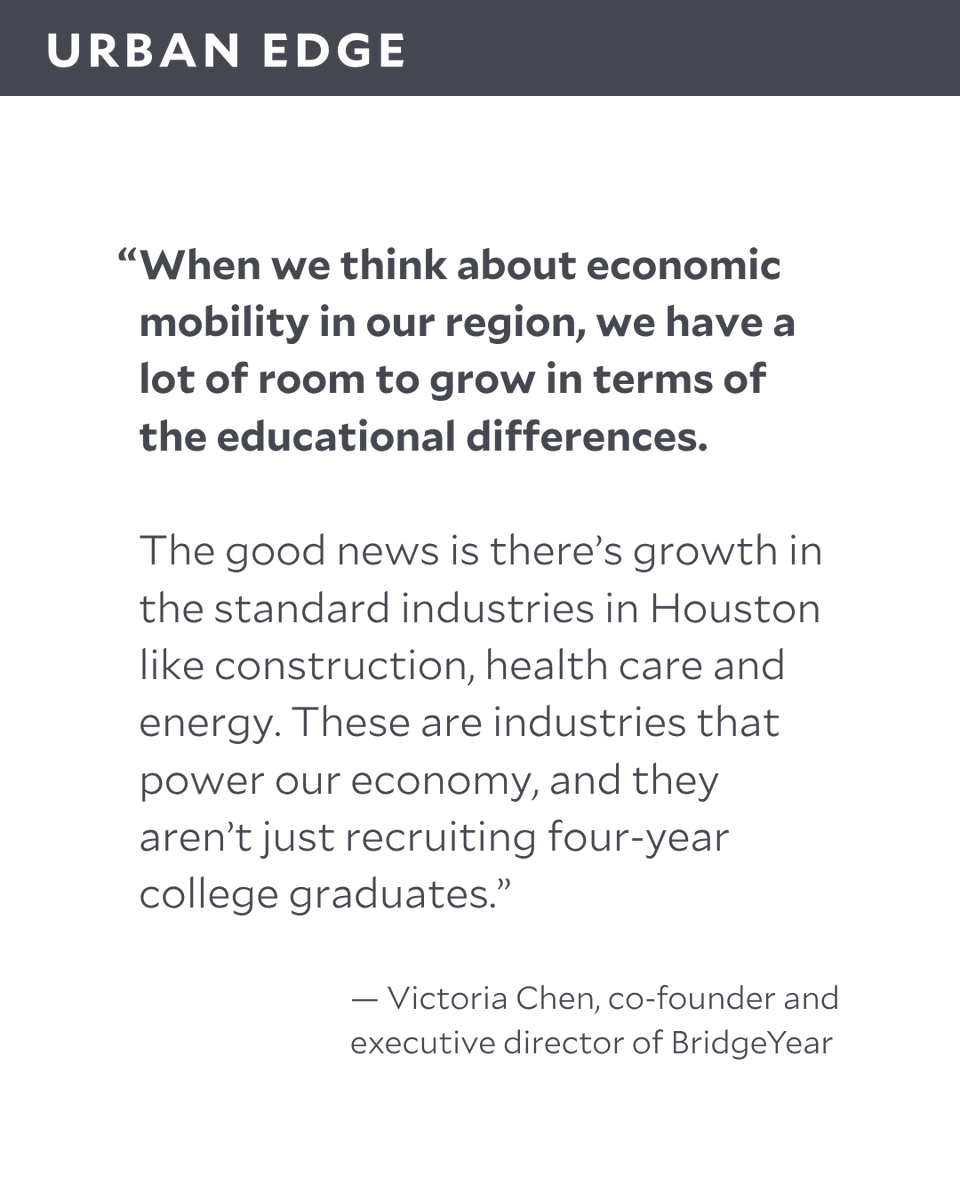
CHIP is Harris County’s most underused public aid program — with $327 million going unclaimed each year. @Connective_tx, a Houston nonprofit, is helping families tap into benefits they already qualify for. Read more in the Urban Edge: bit.ly/4oeOMXU
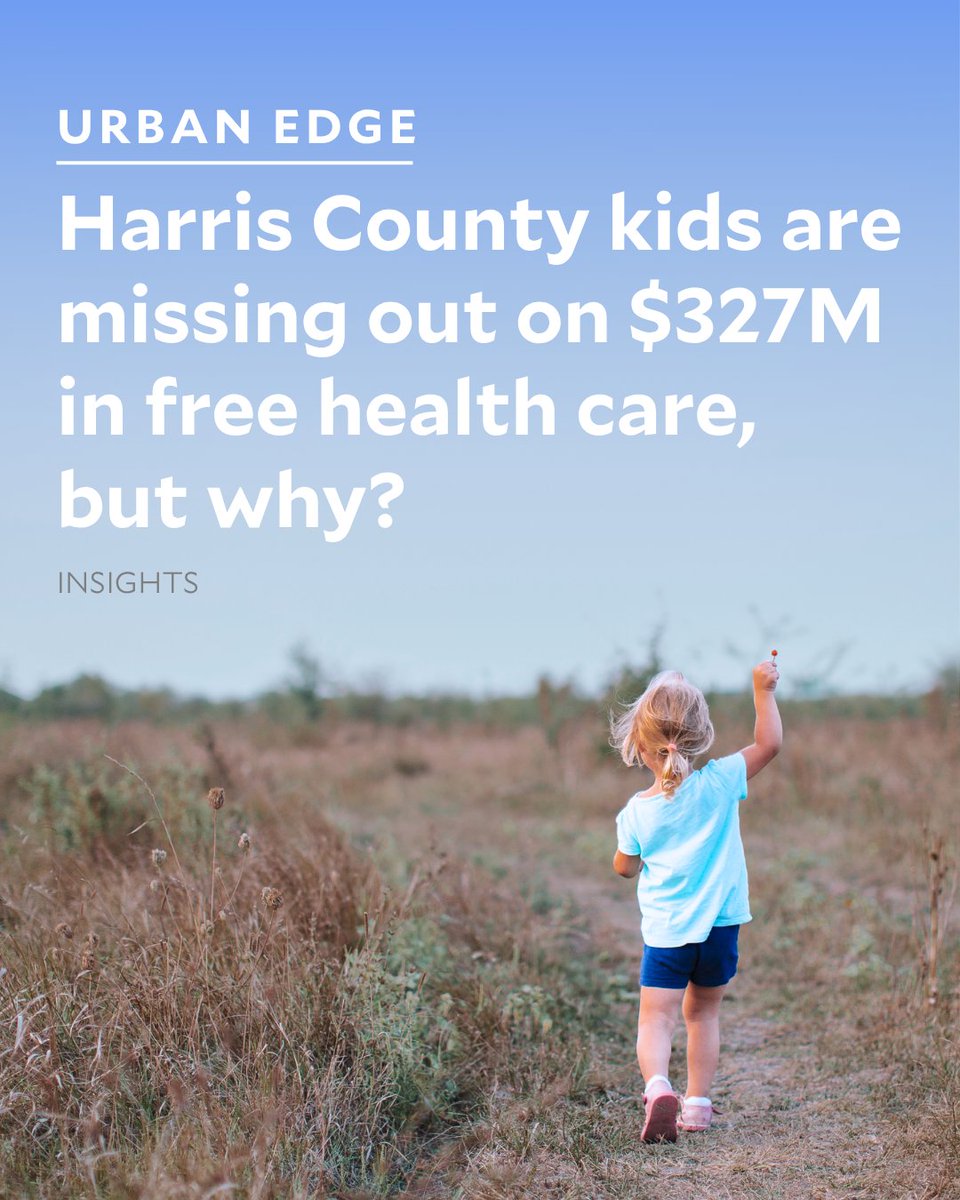
📊 Understanding how data connects to real-world needs starts with listening, and that’s exactly what this week’s discussion delivered. HERC explored how population shifts are shaping school district needs today and in the future. Thanks to all who joined us! @cmhouston @PNCBank
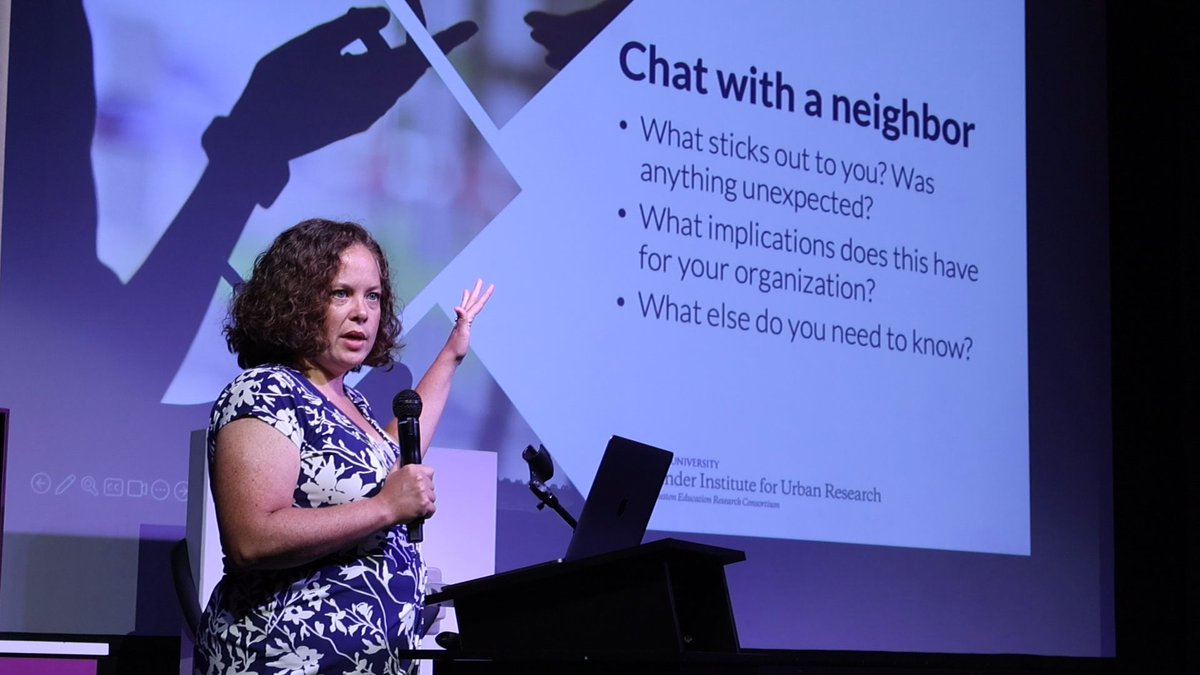
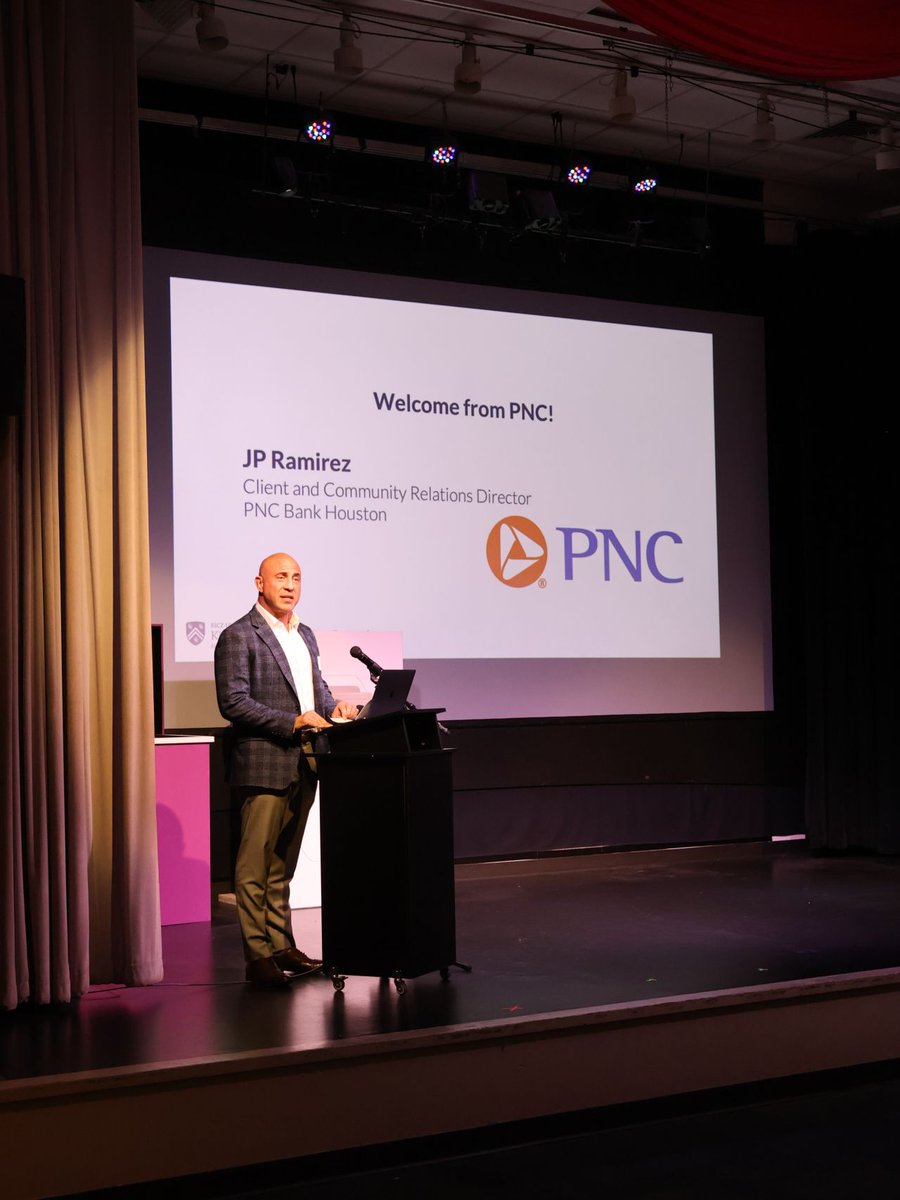
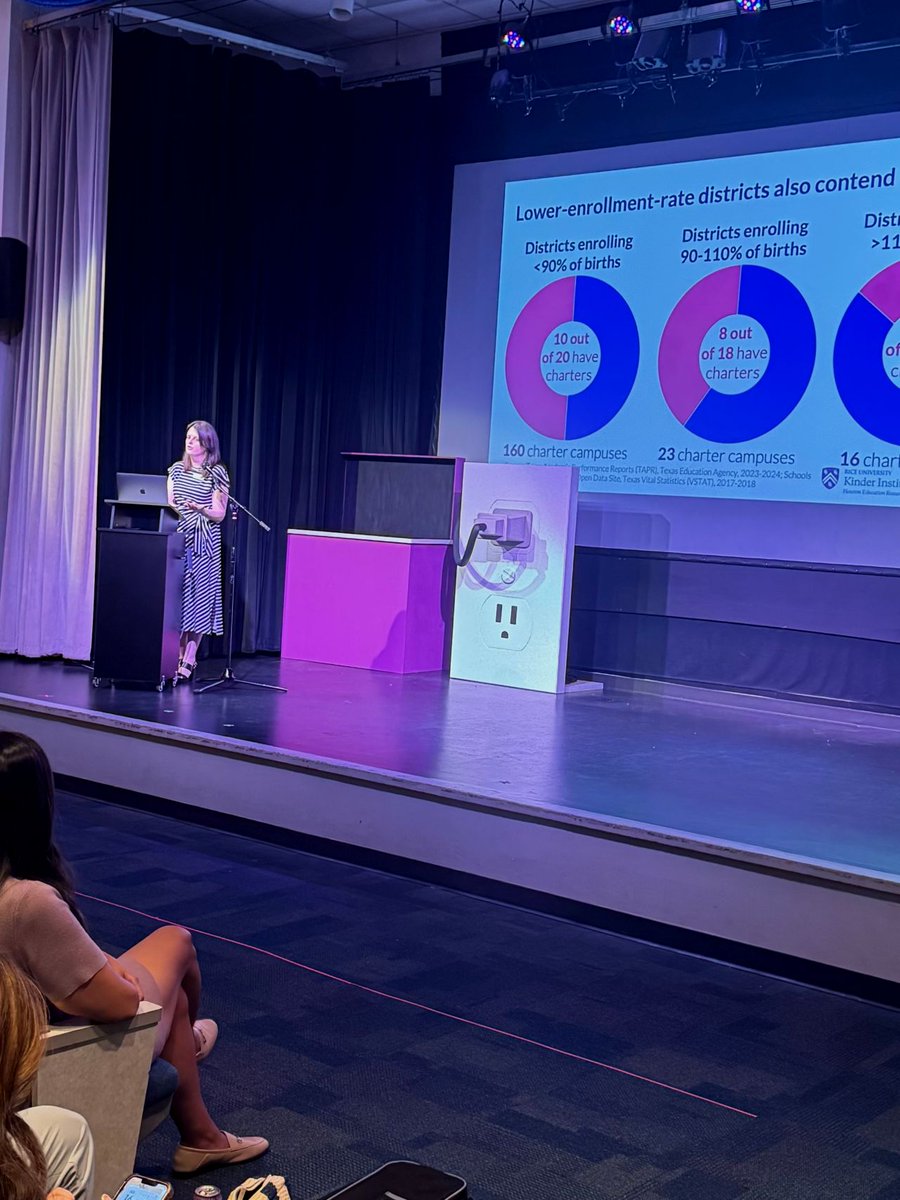
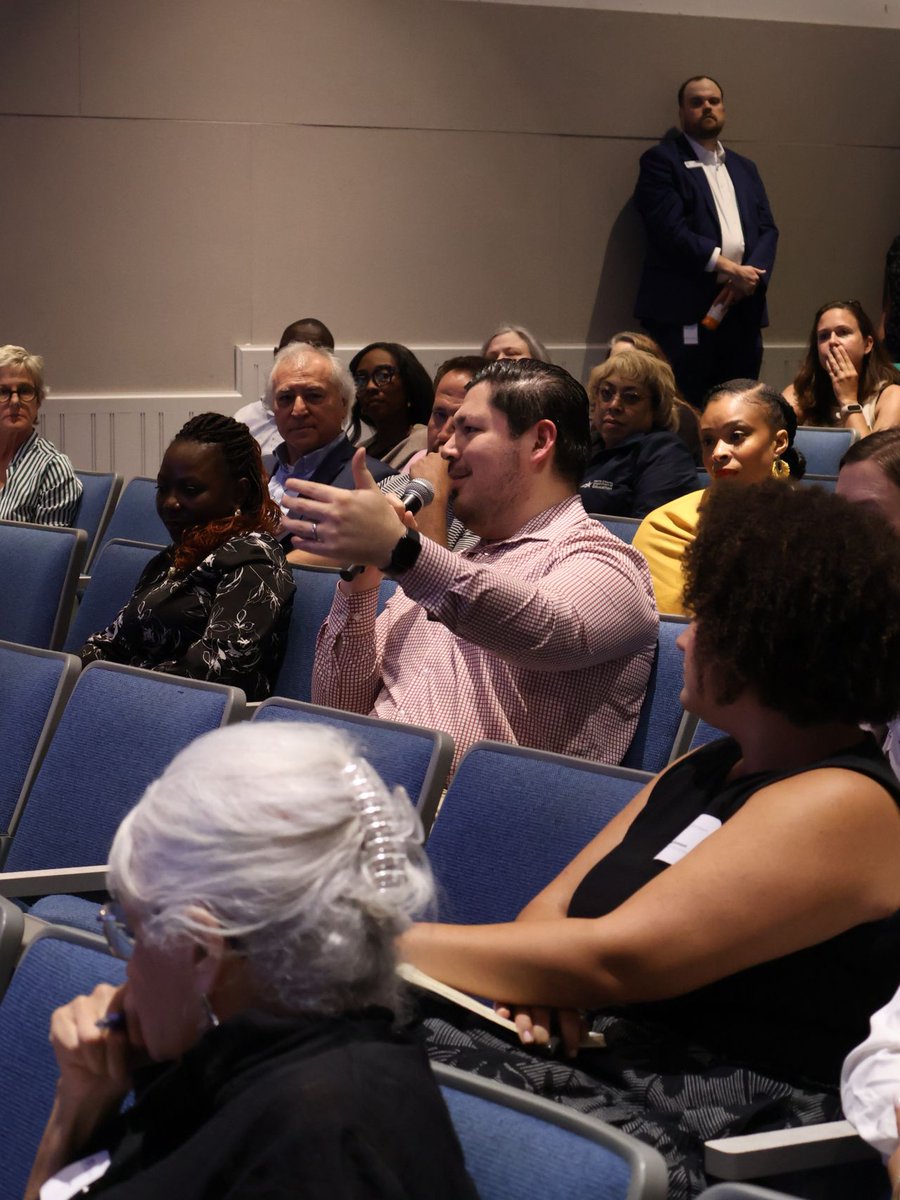
📈 Home prices in Houston and Harris County keep rising, but incomes aren’t keeping up. The Kinder Institute’s State of Housing report, featured on @HomesDotCom, shows median earners can’t afford median-priced homes. Read more: bit.ly/40rrraU
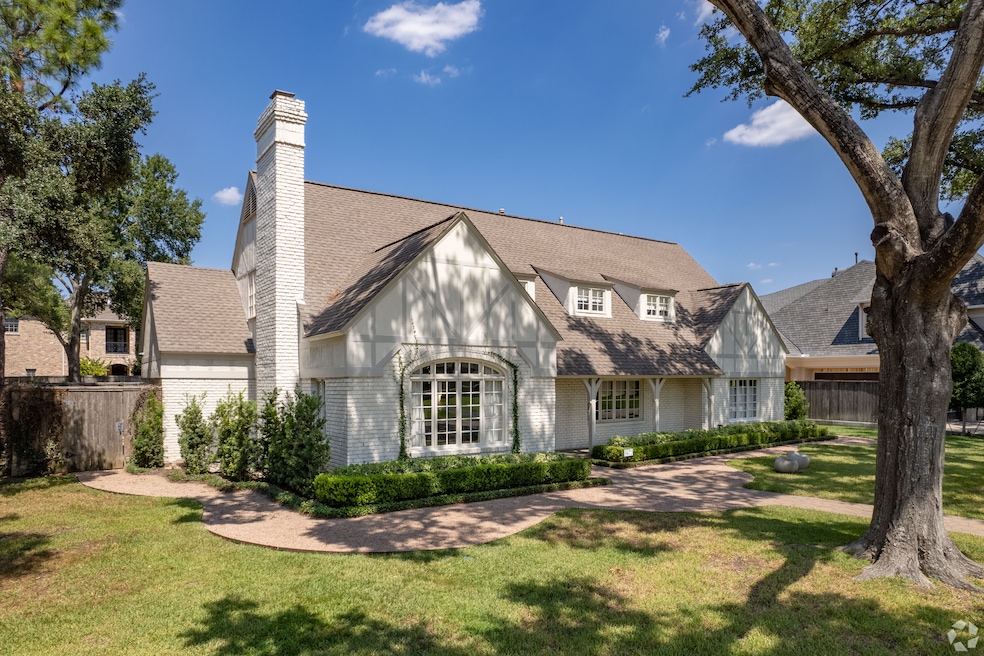
Is a lack of skill blocking Houstonians from finding a good job? The Urban Edge explores solutions to the “skill gap” as companies import talent and local students struggle to connect classwork with sustainable careers. kinder.rice.edu/urbanedge/hous…

💼 Preparing Houston’s future workforce starts in high school. The Urban Edge spoke with BridgeYear on how school districts can connect classwork to careers. Read more: bit.ly/4l4pby8
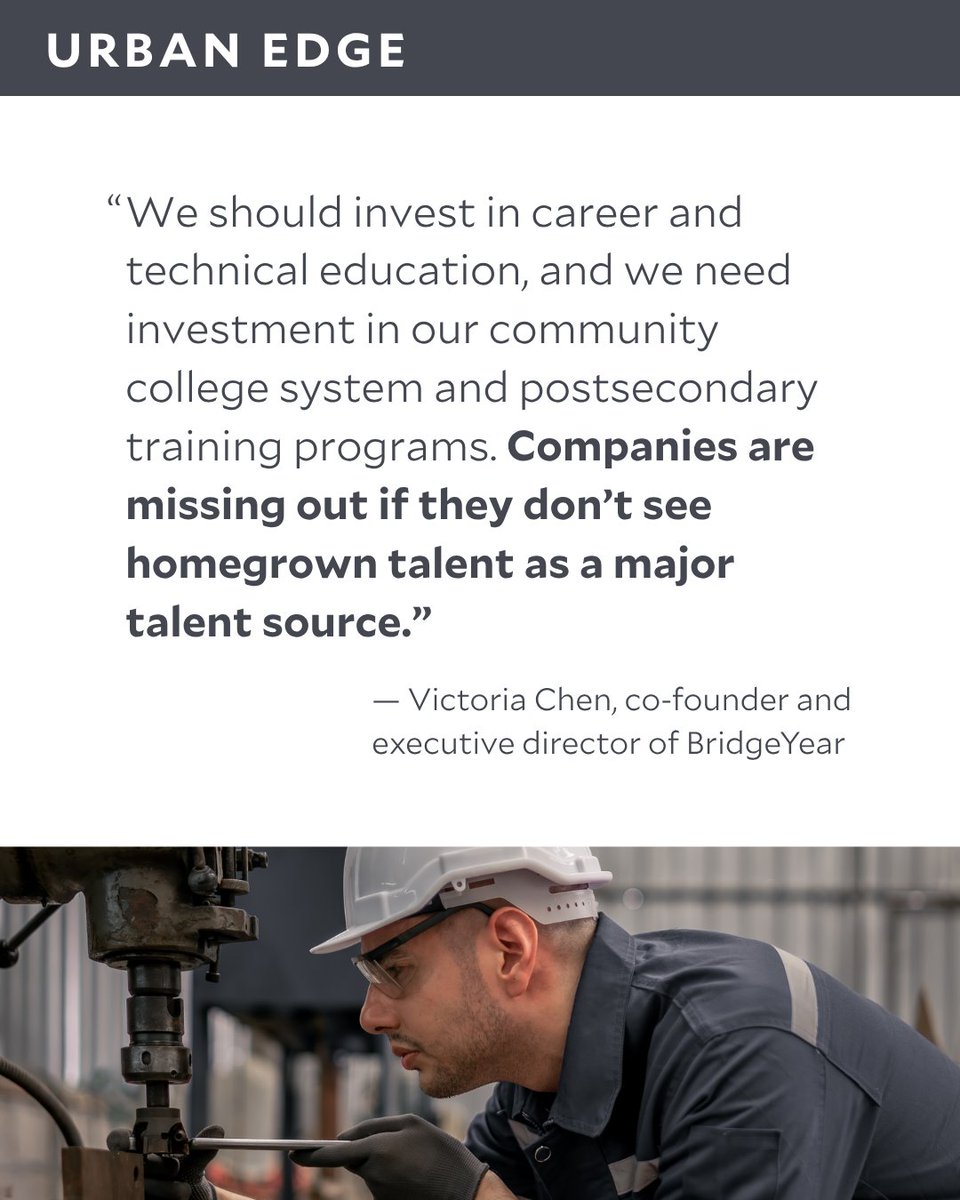
🏙️ Houston’s workforce is expected to reach 4.8M by 2050, but will longtime residents benefit from that growth? The Urban Edge looks at how expanding access to “middle-skill” jobs could help more Houstonians thrive. @bridgeyear | Read more: bit.ly/4l4pby8
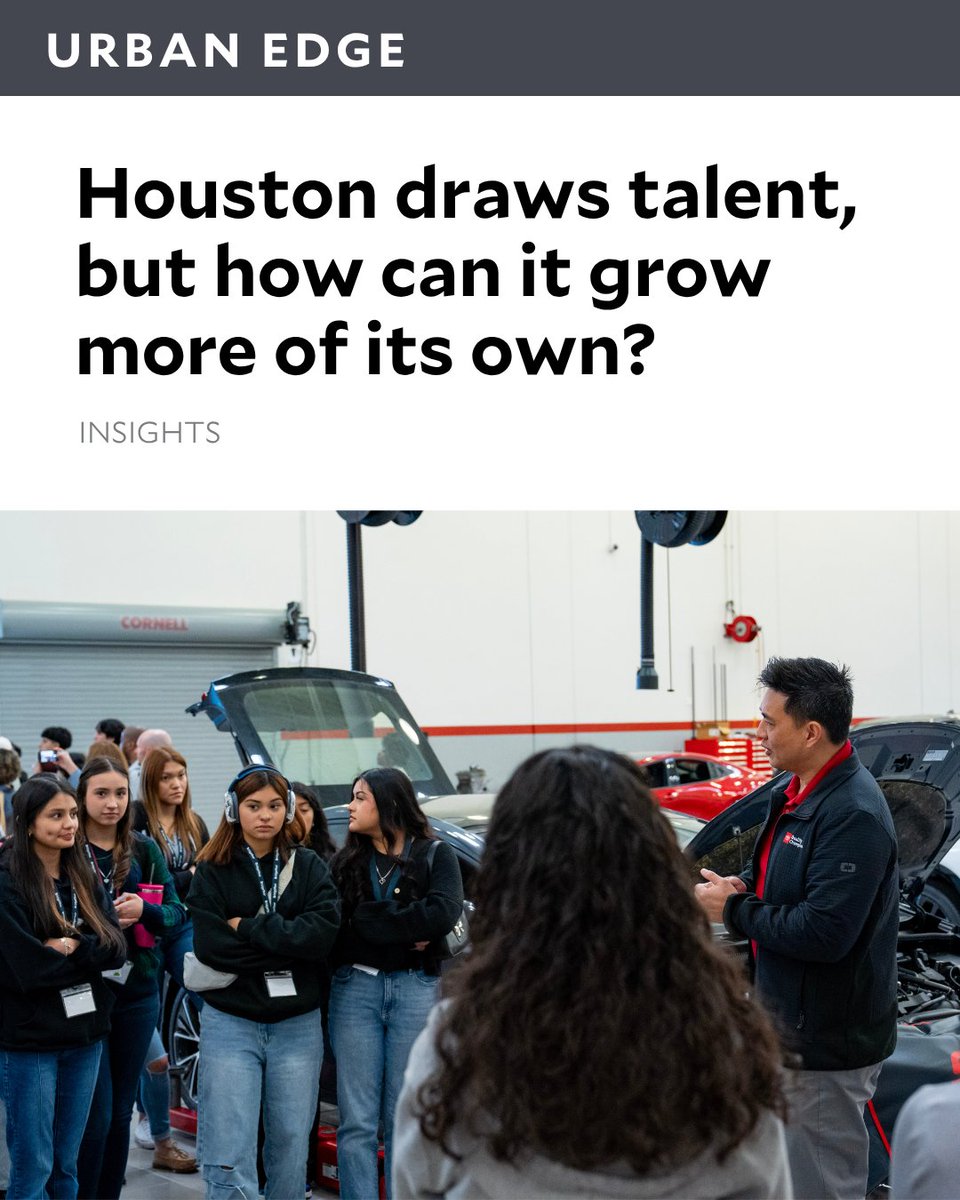
As Earth’s climate changes, extreme weather is becoming more common. Our research shows how these shifts are impacting Houston — from housing costs and disaster preparedness to growing concerns about the future. 📚 kinder.rice.edu/research
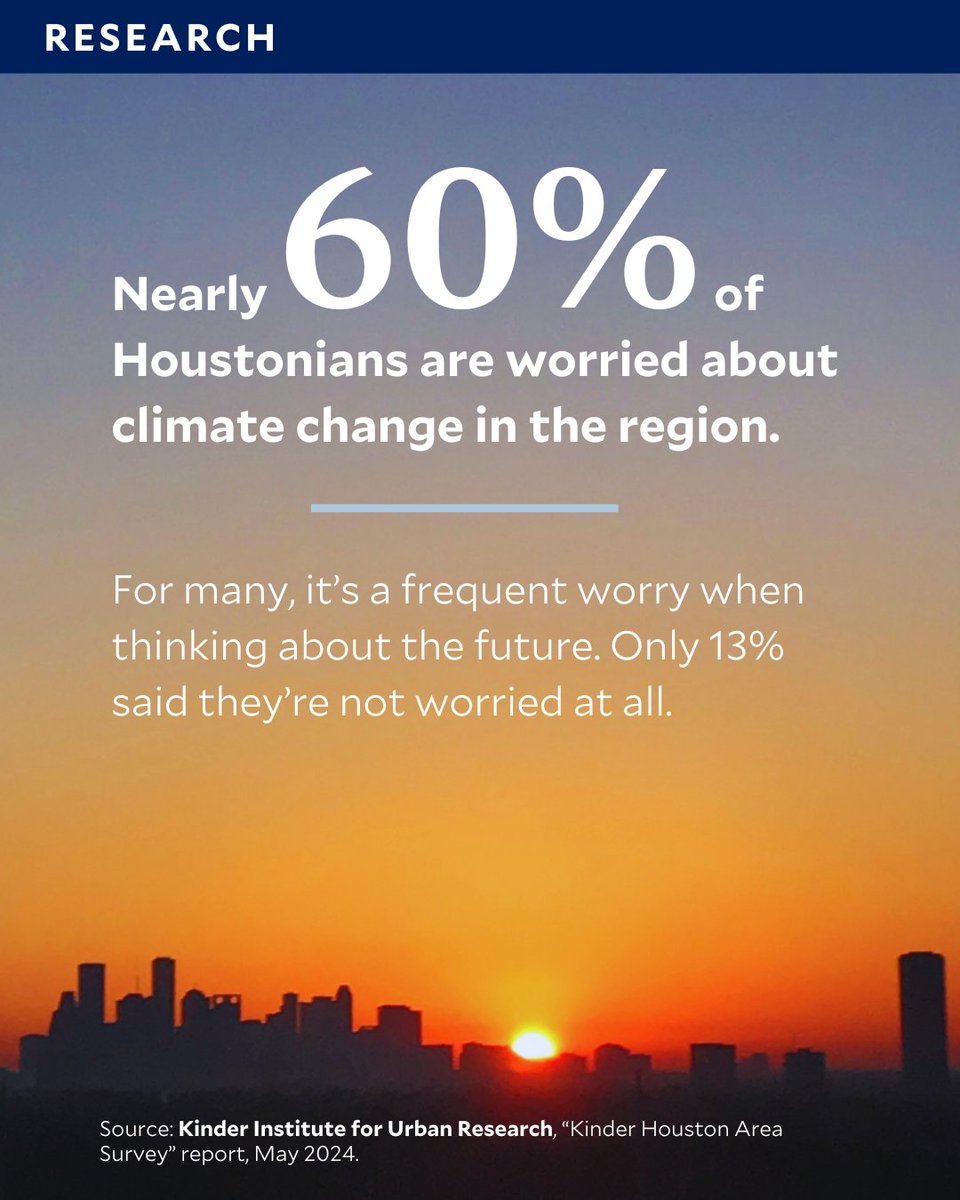
Nearly 9 in 10 residents struggling with housing costs say high utility bills are a major factor — followed by severe weather, income instability, and rising rent or mortgage. 🏘️ 2025 State of Housing: bit.ly/3GB3UxG
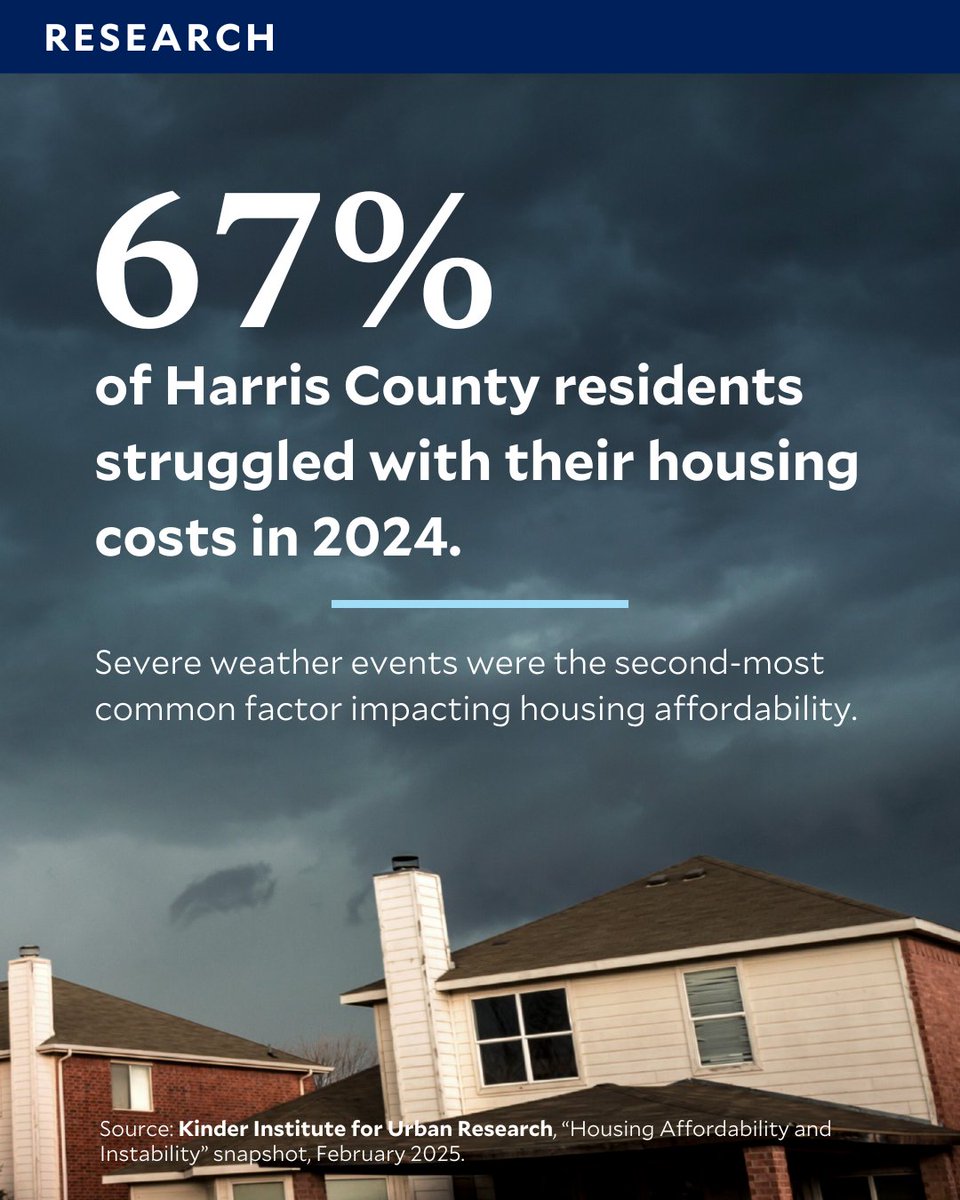
💰 Harris County residents miss out on nearly $1B in unclaimed aid each year. While many support reducing inequality, thousands of eligible households don’t get the help that’s already available. | @Connective_tx kinder.rice.edu/urbanedge/bure…

Elaine Morales-Díaz, senior director of partnerships and policy at @Connective_tx, spoke on the many consequences of Houston’s rising insurance costs during our State of Housing webinar. Watch more ➡️ bit.ly/46hPRY6
🏙️ Houston is on track to join New York and Los Angeles as one of America’s three largest cities. The Urban Edge dives into where this growth is happening — and how it stacks up against other population hubs. Read more: kinder.rice.edu/urbanedge/hous…

🏠 During our State of Housing webinar, James Elliott with the Center for Coastal Futures and Adaptive Resilience at Rice University explained how climate threats can reinforce housing inequality. Watch more: kinder.rice.edu/urbanedge/vuln…
🏘️ Houston faces some of the nation’s highest climate risks — from major storms to daily heat. The 2025 State of Housing report tracks how these threats intersect with rising housing costs. Explore the data in our interactive dashboard: stateofhousing.datahouston.org

While many Houston-area residents believe hard work can lead to success, most also recognize that poverty is often driven by circumstances beyond a person’s control. 📘 Full report: kinder.rice.edu/research/kinde…

Last week, nearly 400 people joined us — along with climate expert Jeremy Porter from First Street — for a webinar on two urgent issues facing Houstonians: climate and housing. Full video: bit.ly/46hPRY6
📱 Two-thirds of Harris County residents use fintech like Cash App or Klarna — but experts warn against storing money in these apps. “They don’t offer the same security as a bank account,” says Schirell Sidney of @HouUnitedWay. How do we bring financial education into fintech?

Buy-now, pay-later services like Klarna and Affirm are catching on in Houston — about 1 in 4 residents use them. Most turn to these tools to spread out payments, often for essentials like clothing and groceries. 🛍️ More insights: bit.ly/3SmykG3

In our study, most Harris County residents rated their financial knowledge at a 4 or 5 on a 7-point scale. We also learned most go to family/friends for money advice, only 9% own crypto and 26% use buy-now, pay-later apps. ➡️ More findings: bit.ly/3SmykG3
